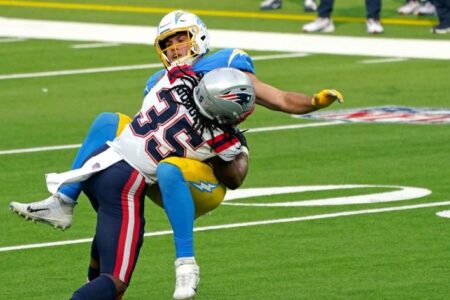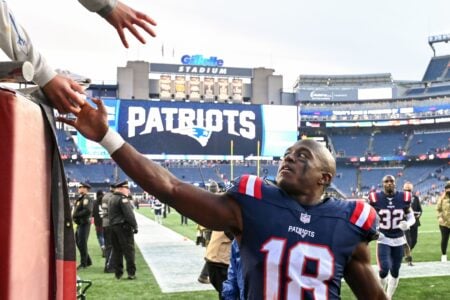Fencer
Pro Bowl Player
- Joined
- Oct 2, 2006
- Messages
- 14,293
- Reaction score
- 3,986
There seems to be a sentiment that if a player outperforms his contract sufficiently, he's entitled to have it torn up and be given a new one.
I don't agree.
I DO agree that he's entitled to use his leverage to try to negotiate a new one, but that's not quite the same thing. For one thing, I also agree that he's entitled to use his leverage (such as it is) even when he didn't play particularly well (not that it's easy to think of an example when that would work).
Employees, in my opinion, are only entitled to "favors" from employers when:
1. Employers have excessive power.
2. It's a well-understood custom that they get those favors.
Neither case seems to apply, given how much leverage the players as a group have when negotiating the CBA.
Opinions I have that are exceptions or close to exceptions to the foregoing include:
A. The retired players are entitled to pension increases.
B. Guys on short salaries who get a lot more reps than anticipated deserve may more money, as their body gets used up by the hits. (The bonus program whereby guys get extra league money in such situations may suffice to cover that.)
C. When a team makes a very specific verbal promise, it should honor it.
But for example, I don't think any of the exceptions apply to Mankins; he's out of line. Ditto Ty Law before him. Seymour wasn't a bad guy for getting what he could, but he wasn't entitled to it either. Ditto Branch.
I don't agree.
I DO agree that he's entitled to use his leverage to try to negotiate a new one, but that's not quite the same thing. For one thing, I also agree that he's entitled to use his leverage (such as it is) even when he didn't play particularly well (not that it's easy to think of an example when that would work).
Employees, in my opinion, are only entitled to "favors" from employers when:
1. Employers have excessive power.
2. It's a well-understood custom that they get those favors.
Neither case seems to apply, given how much leverage the players as a group have when negotiating the CBA.
Opinions I have that are exceptions or close to exceptions to the foregoing include:
A. The retired players are entitled to pension increases.
B. Guys on short salaries who get a lot more reps than anticipated deserve may more money, as their body gets used up by the hits. (The bonus program whereby guys get extra league money in such situations may suffice to cover that.)
C. When a team makes a very specific verbal promise, it should honor it.
But for example, I don't think any of the exceptions apply to Mankins; he's out of line. Ditto Ty Law before him. Seymour wasn't a bad guy for getting what he could, but he wasn't entitled to it either. Ditto Branch.


















